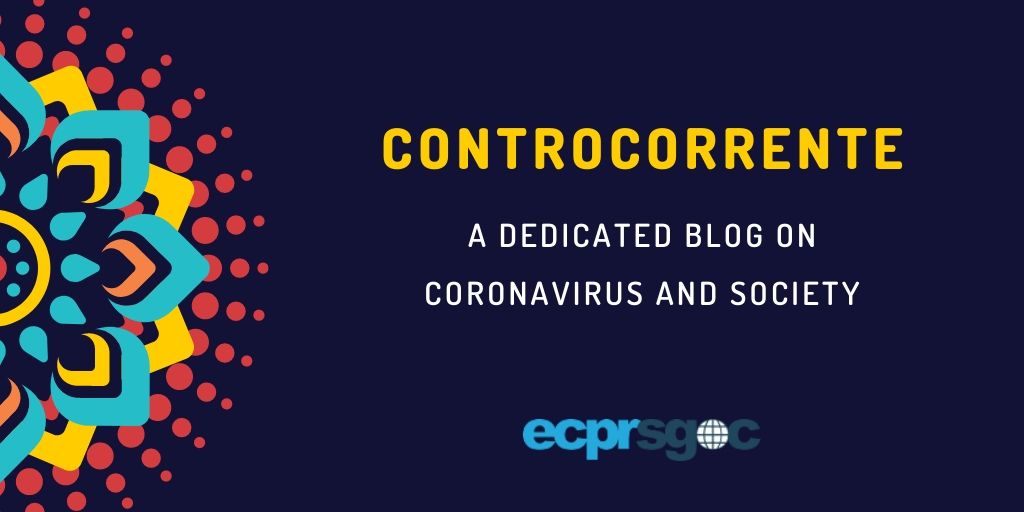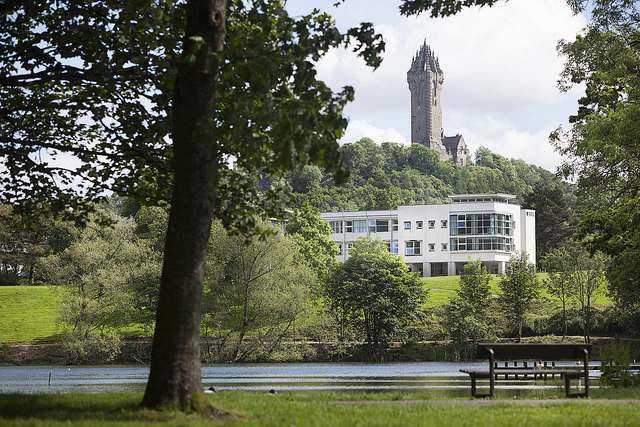
An academic of the floating world
(with apologies to Ishiguro)
Niall Hamilton-Smith
University of Stirling
The countdown to lockdown was I’m sure for all colleagues, fast, unexpected (if expected), and dramatic. At Stirling our normally serene campus was notably flustered as we shambolically improvised an exit, packing key belongings into boots, scrambling for tech, and besieging our (superb) IT colleagues in the library with foolish questions about big blue buttons and such like.
The physical sensation of that last week felt like a series of rollercoaster drops, one after the other without respite, as through an endless series of crisis meetings the enormity of what was about to hit began to impress. With time though that sensation has altered, and what I am personally left with, is not a sense of dropping but of floating. It has become evident that it was not me that was falling, but everything around me. To bastardise Marx all that is solid has indeed melted into air, systems, assumptions, deep grooves of routine and bureaucratisation, all have fallen away with remarkable ease. Now when my family take our daily permitted exercise, the visual exchanges with others are not so much glances of suspicion and distrust (too near, not essential, six children – really?), but rather are gazes made awkward by virtue of requiring new and fresh recognition of others, others that we have not previously had to consider, note, or acknowledge during the normal routines and rush of ‘pre’ life. Everything demands reconsideration.
As academics this is not an alien exercise and as a criminologist it is easy to consider and speculate what the current crisis might imply for our areas of interest. Crime? A bit of ‘up’ and a bit of ‘down’. In terms of organised crime we may expect upsurges in online frauds, supply-chain frauds and counterfeit goods, as well as the sorts of territorial consolidations around vulnerable populations highlighted by Varese in recent media appearances. And whilst, much of this is speculative, our hunches already have some tentative data to feed on. The capability and speed of fraudsters here was vividly demonstrated on the back of mobile networks texting customers UK Government health messages on the 24th March. Phising scams followed on various networks within hours, and some of these were both technically adept, but also psychologically quite well-crafted; one for instance played on fears that a failed bill payment might lead to customers getting cut off from their network, to be turfed out of the digital lifeboat at the very moment the ship was sinking!
The current crisis has certainly pushed more of us into a much greater reliance with online interactions and online commerce than we are comfortable with. Many ‘wannabe’ fraudsters may also use this period of enforced home-time to skill-up in terms of their own technical expertise. But will this in turn represent a significant upgrade in criminal capability, or will our sudden mass reliance on online living – after a period of initial predatory feasting on the naïve and vulnerable – lead to the emergence of herd immunity, as the bulk of the population learn new skills that fend off easy victimisation?
Research funds are starting to flow to address some of the myriad of questions thrown up by the COVID-19 crisis. Some ask for questions on impact, most looks for studies of resilience and effective response. Behind many calls the ultimate, implied objective, is research that informs recovery and a return to ‘normality’. But those of with a seasoned view of resilience might beg to differ. In the literature of disasters, extremity and recovery, resilience is marked by adaptation and evolution, not a return to ‘normal’, and who anyway would want to return to a normal that has become as dysfunctional as ours.

When the current crisis precipitated the foreground scenery of our lives to fall away, like cheap plywood props on a spaghetti Western, what was thrown into stark relief were more monumental structures, some troubling, some encouraging. The harshness of social inequalities has been perhaps unsurprising, but the sheer scale of ‘precarity-creep’ in our contemporary economies has come as more of a shock. More parochially in Higher Education – and I may not be able to speak for every institution here – as the REF, TEF and all the other tawdry, bureaucratic and metricised garb have dropped to the floor, what has emerged blinking, naked into the sunlight, are institutions that have not forgotten what their core purposes are, and which are indeed staffed by brilliant colleagues who have students and civic purpose etched into their DNA.
A return to normality now would be akin to repeating the dramatic tragedy where the gravely sick prisoner – having been tenderly nursed back to health – is clothed in a clean white shirt, is led out into the sweet, fresh air, placed against a wall and shot… If and when the all clear sounds, we march out from our lockdown shelters and head straight back to the shops and the trough of hyper-consumption, we will be in deep trouble, and the azure blue skies of Delhi will again darken and rust.
So let’s welcome the ‘new normal’ not as sub-optimal adaptation to crisis, but as possibility and renewal. If all else fails going forward, I at least have something to use in teaching that can be harnessed to just about every topic and social theory, and which can unite me and my students in a single profound experience and reference point; no more blank stares of recognition as I pontificate on about Thatcher or Mandela! But let’s hope for more. The last great crisis in the UK finished in 1945, and from it, and the genuine sensibility of ‘in it togetherness’ that it produced, stemmed the welfare state, universal secondary education and the National Health Service.
Yours, floating and fingers crossed.
***
This blog aims to reflect the opinions, thoughts, and concerns of academics and researchers related to COVID-19. All views belong to authors and it does not represent the views of any organisation.

